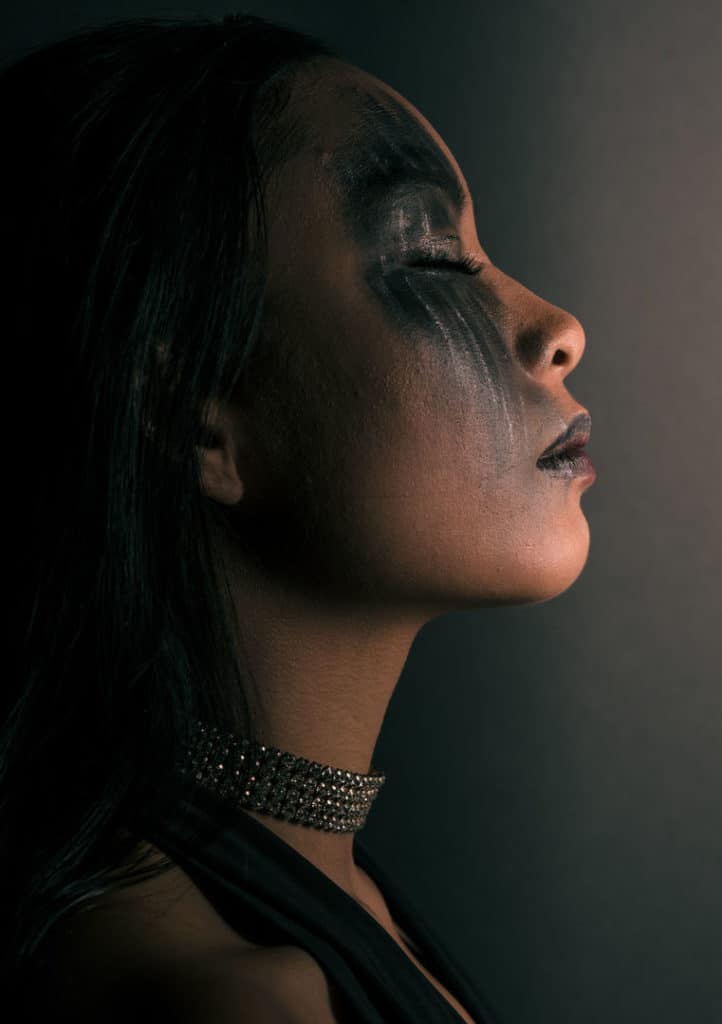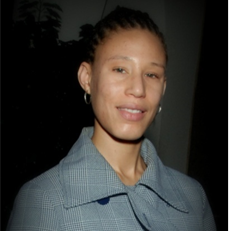At this moment I am reminded of a text message that I received a little over 6 years ago. As I was hanging out with some of my girlfriends, my phone lit up to indicate that I had received a notification. When I opened the text message there was a request that I pray for my cousin‘s wife. Upon the receipt of further details, I learned that my cousin and his wife had been in a car accident. When I finally got the whole story, it was revealed that my cousin and his wife were in a car accident and his wife had died. A woman had been drinking and decided to drive; she rear ended their car, pushing them into the intersection, causing a multi-car collision. Her poor decision-making caused a family to lose their daughter, a husband lost his wife, a daughter was left without a mother, so many were left without a friend.
Have you ever had an experience when you were forced to deal with the consequences of another person’s decision? Maybe the circumstance weren’t quite as drastic as the one previously mentioned, nonetheless, you were left feeling annoyed, frustrated, disappointed or downright angry because you were negatively impacted by someone’s poor choices. Maybe you can relate to being left to pick up the pieces, you were left to figure out how to move forward, how to make new ways, how to heal, left to sort out your emotions so that anger, sorrow and disappointment don’t turn to hatred and bitterness. If you fall into any of these categories, you might be able to identify with today’s woman—Jephthah’s daughter.
This little known/ infrequently discussed woman’s story can be found in chapter 11 of the book of Judges. We are introduced to Jephthah; he’s been summoned to lead the fight against enemies of Israel. During his time of fighting, he makes a rash vow to the Lord and says that, if he is given victory over the Ammonites, whatever comes out of the door to meet him when he returns in triumph he will sacrifice it as a burnt offering. Jephthah is victorious and he heads home after the war. The first person he sees is his daughter. She was his only child and when he sees her he was distraught. Jephthah’s daughter replies, you have given your word to the Lord. Do to me just as you promised.
This young woman, like so many women in the Bible, is introduced not by their name, but by her relationship to her closest male relative, her father. I’m sure she had a name. Maybe it was Sarah, or Mary, or Seila, or Adah, but it is not revealed in the text. We are introduced to her as Jephthah’s daughter. Moreover, when we meet her, she is on the wrong side of a bad decision made by her father. Some of us are familiar with this scenario. We are acquainted with having major decisions made about our life by someone outside of ourselves, specifically by a man or men. We can relate to feeling like we do not have autonomy or agency. We know about having our value or worth being defined by our proximity to men—so-and-so’s daughter, the wife of such-and-such, or this man’s sister. We know about having someone else’s rash statement negatively impact us—cause us to lose out on opportunities, experience a restricted quality of life. We know about wanting to have our own identity.
Jephthah’s daughter, like so many women in the Bible, is introduced not by their name, but by her relationship to her closest male relative, her father. We are acquainted with having major decisions made about our life by someone outside of ourselves, specifically by a man or men.
You and I are so much more than the men we are related to or the ones with which we associate. We are bigger than someone’s thoughts or imaginations of us. We are much more than a role or position that someone might think we would be a good fit for. We are broader and bolder than being a sacrificial lamb and much more than the back on which someone builds their bridge or ministry. We are fearfully and wonderfully made. We are made in God’s image. God has a purpose and a plan for your life and mine. That plan is tailor-made for us and it encompasses the gifts and talents that our Divine designer has placed within us. We were not made for the background or to be in someone’s shadow. We were made for the foreground—we are more, God made us to be so much more.
I wonder, like Professor Karla Bohmbach, where was this girl’s mother and where were the female elders? Why didn’t the community do anything to intervene in the fulfillment of this ridiculous vow?1 This lack of response spotlights for me that standing up for and protecting our girls and our women is a familial and community responsibility and there is much work to be done in this area. According to The Washington Post nearly 250 women, including 48 Black women have been shot and killed by police since the newspaper began tracking police-involved shootings in 2015.2 According to Dr. Kimberlé Crenshaw, “Black girls as young as 7 and Black women in their 90s have been killed by the police, and for a long time nobody was talking about it.”3 We say the names of the men whose lives have been taken, and they matter. But so do Michelle Cusseaux, India Kager, Korryn Gaines, Sandra Bland, Aiyanna Stanley Jones, Rekia Boyd, Atatiana Jefferson, Breonna Taylor and, most recently, Ma’Khia Bryant. We must say their name and work for justice for them too.
Far too often our beautiful Brown and Black baby girls are parentified or adultified. They are more likely to be abused, abandoned and left unprotected. According to research by The Georgetown Law Center on Poverty and Inequality4 adults often view Black girls as less innocent and more adult-like. They are treated more harshly by the education and so-called justice systems. Black girls are hypersexualized and viewed as loud, sassy or attitudinal. Black girls are often categorized as disruptive and malicious when they are just demonstrating age-appropriate behaviors. Our girls and we as women are worthy and deserving of love, nurture and protection. We as family, whether biological or by virtue of sharing the same air, are called to look out for each other. We are challenged to seek the mental, physical, emotional, and spiritual health of one another. We are our sister’s keeper.
Audre Lorde once wrote, “I am not free while any woman is unfree, even when her shackles are very different from my own.”5 Today, women of God, may you feel affirmed that your identity is not tied up in the men whom you are closest to but in our connection with the One in whose image and likeness we are made, the One who loves us, the One who is for us and wants us to thrive. May we find our voice, and if we have already found it, may we use it to speak up for ourselves and our sisters, to advocate for our wants and our needs, so that we together might all be free.
Notes
1 Karla Bohmbach, “Daughter of Jephthah: Bible” Jewish Women: A Comprehensive Historical Encyclopedia Jewish Women’s Archive (20 March 2009), https://jwa.org/encyclopedia/article/daughter-of-jephthah-bible.
2 Marisa Iati and Jennifer Jenkins, “Nearly 250 Women Have Been Fatally Shot by Police since 2015,” The Washington Post, Sept. 4, 2020, www.washingtonpost.com/graphics/2020/investigations/police-shootings-women/.
3 Donna M. Owens, “Breonna Taylor and hundreds of Black women have died at the hands of police. The movement to say their names is growing,” USA Today News, March 15, 2021, www.usatoday.com/in-depth/news/investigations/2021/03/11/sayhername-movement-black-women-police-violence/6921197002/.
4 Rebecca Epstein, et al., “Girlhood Interuppted: The Erasure of Black Girls Childhood,” Georgetown Law Center on Poverty and Inequality, 2017, www.law.georgetown.edu/poverty-inequality-center/wp-content/uploads/sites/14/2017/08/girlhood-interrupted.pdf.
5 Audre Lorde, “Uses of Anger: Women Responding to Racism,” National Women’s Studies Association Conference, Storrs, Connecticut, 1981.


6 thoughts on “Jephthah’s Daughter and #metoo”
Beautiful reminder that I matter just as I am not because of the men in my life! Thank you Rev. Holder!! I am one again empowered by your words of wisdom and encouragement!!
I am so touched by this powerful and inspiring article. For soo long , we have been made to feel less than as women , just because we didn’t marry or were unable to bare children . And then when we worked hard and got a degree to better our opinions, we were paid less than a male with the same degree. Time of being placed in a position where I had to work harder to prove my worth is done ! God who from the beginning knew my worth … finally got me to see the unlimited existence I have in him! God’s continual blessings to you 🙏
Tamika………such an awe inspiring article. I am so greatly proud of you, yet not surprised. You wrote with authority, truth, and passion. Please continue in this journey the God has placed you in. We need you on the Wall!!
Powerful article! Thank you so much for allowing God to use you. I pray that many individuals read this article and be challenged, motivated and blessed by it. May God continue to bless and keep you.
Thank you for this message. Keep pressing and preaching as only you can! I continue to pray for you in your appointed journey 🙏🏾🙏🏾🙏🏾
Wonderful, thought-provoking article. I too know that feeling of not having a name or identity other than some man’s shadow.
I am so grateful to God for you and your wisdom.